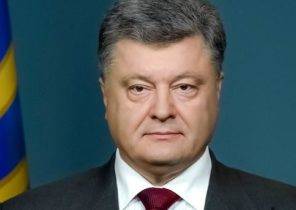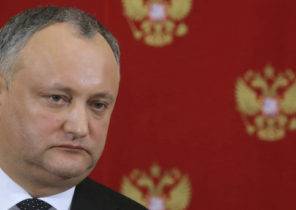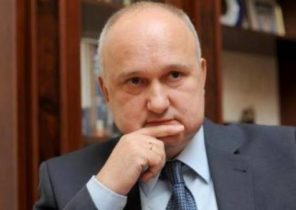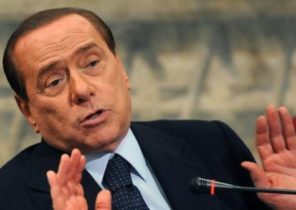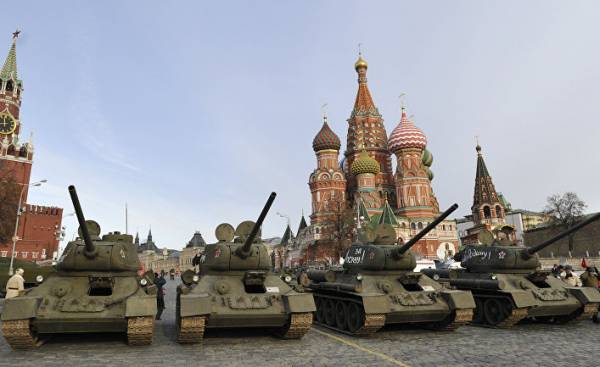
The last time I was in Russia in October, and the purpose of my trip was to study the us-Russian relations. I got home just before the election of a President trump, knowing that relations are in terrible condition and continue to deteriorate. This is still happening, and Russia in response to new sanctions of the Congress, which was signed last week by President trump demanded to reduce the number of staff of the us diplomatic mission to 755.
The October trip and the subsequent events raise a number of important issues. What I want US — to what, in their opinion, should be these relationships? What is our vision of an acceptable end point? But now, when the administration trump has been working for more than six months, the answers to these questions are still there.
The seventh of October 2016, a week before my trip, James Clapper (James Clapper), who was then the Director of national intelligence, and the Ministry of national security published the first official U.S. statement that Russia is interfering in our elections. When my colleagues and I asked the representatives of the Kremlin and the foreign Ministry officials to comment on this, they (as expected) these charges are categorically rejected. They launched into a discussion in the spirit of Kremlin rhetoric, claiming that all the problems in Russian-American relations to blame the United States. They condemned the US policy of expanding NATO expansion, their policy in the Balkans, in Libya, the development of democracy in the countries of the former Soviet Union and in Syria, not to mention many other things.
Along with this, Russian media controlled by the state, actively discussed the topic of war: if elected, Hillary Clinton Russia and the United States will be de on the brink of war, and the Russians have to prepare bomb shelters. Yes, that was it.
It reminded me about the lesson I learned from previous experience with the Russian: they always know what they want. Therefore, you should know what you want — otherwise they will be crushed. In Russia today the question is what Vladimir Putin wants, as in all serious cases dictates and commands it. And his purpose is clear: total domination inside the country; a powerful impact on its neighbors; the weakening of Western institutions such as NATO and the European Union, and “great” influence in key regions like the Middle East.
I apologize for this phrase, but it’s all for the revival of Russia’s greatness.
But what do we want? Of course, we can’t give Russia and allow her to act in his own way- whether it is about interference in our elections or about violating the borders of independent States, which, I hope, that we will ensure compliance with international agreements, signed we and they. However, we must avoid a real war with a country which has a threshold of use of nuclear weapons is lower than ours.
In addition, we must not fall into the trap of thinking that a new cold war, and then to act in accordance with the instincts developed in those days. Still, the cold war was easier: it was an uncompromising global confrontation between two diametrically opposed ideologies, one of which was destined to disappear. The collapse of their failed ideology. They lost their country, the Empire and the Communist economic system.
Then the fight was like a game of checkers. Today is a game of chess.
The current clash with Russia is unable to assume complete victory with no second act, because, unlike Soviet Union, Russia is not going to disappear. Therefore, our strategy should be aimed at establishing (for Moscow) clear boundaries.
We can’t force Russia to welcome NATO on its borders, but we can work to strengthen the unity of the Alliance and a containment strategy. We can counteract the Russian diplomacy aimed at wavering members of the Alliance, and based on such measures as the recent forward deployment of NATO forces in the Baltic States and Poland — always including these measures in terms of easing pressure on Russia.
We can’t force Russia to abandon spyware habits that began in Imperial times. But we can strengthen the forces and means of our intelligence, and — very important — to begin to systematically expose the misinformation from the Russians, “fake news”, they fabricate based on our citizens. Many European governments have already begun to do this.
We can’t change geography or to force Russia not to pay attention to neighboring regions with which it has developed strong trade and cultural ties. But we can continue to punish Moscow for its seizure of territory or conducting covert influence operations to weaken the independence of neighbouring countries and limit its foreign policy capabilities. We can provide Ukraine with more advanced defensive weapons in order to defend ourselves from the Russian invaders. And we can continue to increase pressure on Russia, as did Congress, proposing to impose additional sanctions.
We can’t hold Putin’s desire for foreign adventures such as Syria. But if the administration trump will ever come to your senses and focus, we will be able to focus on restoring our leadership in critical areas. This leadership has to some extent weakened because of the caution of the Obama administration. And since we did almost lost him all over the world because of the low credibility of the Trump and the chaos that reigns in his White house. Yes, our leadership has waned, but give up far too early.
As for internal changes in Russia, one of the deputies of the Verkhovna Rada of Ukraine has said to me during our interview in Kyiv: “Ukraine is the only former Soviet republics that can change Russia.” It meant that the Russians consider Ukraine as the cradle of the historical Slavic States (founded in IXth century) and see Ukrainians their closest ethnic relatives. If Ukraine was able to overcome endemic corruption and become a prosperous democratic state, it would be a stimulus in creating the same standing in Russia. Assistance to Ukraine is one of the most promising strategies, and what is Putin afraid of. That’s why he invaded the Ukraine.
In other words, the challenge today is not to come back to destroy Russia, as it was when the Soviet Union collapsed. We are talking about that as the Renaissance of Russia to curb its most vicious propensities. This requires that the United States has demonstrated an unwavering position in those questions which have for US the greatest value. They must create opportunities for like-minded Russians in their quest for integration into the global system. And maintain caution in areas where U.S. and Russian interests converge sufficiently to be able to support at least limited cooperation.
John McLaughlin, former Deputy Director of the CIA (2000-2994.). Teaches at the School of advanced international studies of Johns Hopkins University (Washington). Analyst television channel MSNBC on issues of national security.
